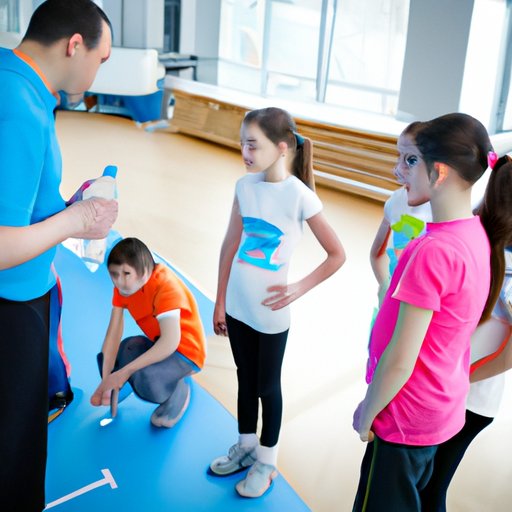
I. Introduction
Staying hydrated is essential for good health, but because the symptoms of dehydration can be difficult to recognize, it can be challenging to know if you are drinking enough water. The purpose of this article is to explain the symptoms of dehydration, discuss the importance of staying hydrated during physical activity and work, provide tips for ensuring that you stay hydrated, and explain how much water you should drink each day.
II. Symptoms of Dehydration
Dehydration occurs when your body loses more fluid than it takes in, and the symptoms can vary. Some common symptoms include:
- Thirst
- Dark yellow urine or not urinating much
- Headache
- Dizziness or lightheadedness
- Fatigue
- Dry mouth or sticky saliva
- Dry skin
- Muscle weakness
- Confusion
- Chest pain
It is important to recognize these symptoms and drink water or electrolyte drinks to avoid becoming dehydrated. If dehydration is severe, it can become a medical emergency that requires urgent treatment.
III. Hydration Tips for Active Individuals
When you work out or engage in any physical activity, you lose water through sweating. To stay hydrated during physical activity, you need to drink plenty of water. Here are some tips for staying hydrated pre-workout, during workout, and post-workout:
- Drink 17-20 ounces of water two to three hours before exercising
- Drink 7-10 ounces of water every ten to twenty minutes during exercise
- Drink 16-24 ounces of water for every pound of body weight lost after exercise
These tips help ensure that you stay hydrated, so you can perform at your best and prevent dehydration-related health issues.
IV. The Importance of Staying Hydrated at Work
Many jobs require individuals to sit at a desk for long periods, reducing the opportunities to drink water. This can make it more challenging to stay hydrated. Here are some tips to help you stay hydrated during work:
- Keep a bottle of water on your desk
- Drink water instead of soda or other high-sugar drinks
- Drink water before, during, and after meals
- Take breaks to fill up your water bottle and go for a walk
By staying hydrated at work, you can maintain healthy blood flow and concentration, improve your energy levels, and boost your productivity.
V. Dehydration in Children
It is essential to ensure that your children drink plenty of fluids to prevent dehydration, particularly during hot weather or when your child is sick. Here are some tips for ensuring your children stay hydrated:
- Ensure your child has easy access to liquids, particularly water
- Make sure they drink enough fluids during mealtimes and before bed
- Encourage them to drink regularly while they are playing or engaging in physical activity
- Provide popsicles or hydrating foods, such as watermelon
If you are concerned that your child is dehydrated, look out for any signs such as extreme thirst, lack of urination, or fussiness, and consult with your doctor.
VI. How Much Water Should You Drink
The amount of water you should drink every day depends on several factors, including your gender, age, climate, physical activity, and overall health. The general recommendation for healthy adults is to drink eight 8-ounce glasses of water (2 liters) every day. However, you may need to drink more water if you live in a hot or dry climate or don’t get enough exercise. A good way to determine if you are drinking enough water is to check the color of your urine; if it is light yellow or clear, you are likely hydrated.
You can also increase your water intake by incorporating hydrating foods into your diet, such as watermelon, cucumber, celery, and citrus fruits.
VII. Conclusion
In conclusion, staying hydrated has numerous benefits for your health, including preventing dehydration-related health problems, improving your mental and physical performance, reducing fatigue, and promoting healthy skin and kidneys. By recognizing the symptoms of dehydration and implementing the tips in this article, you can stay hydrated, whether you are at work, exercising, or just lounging at home.




